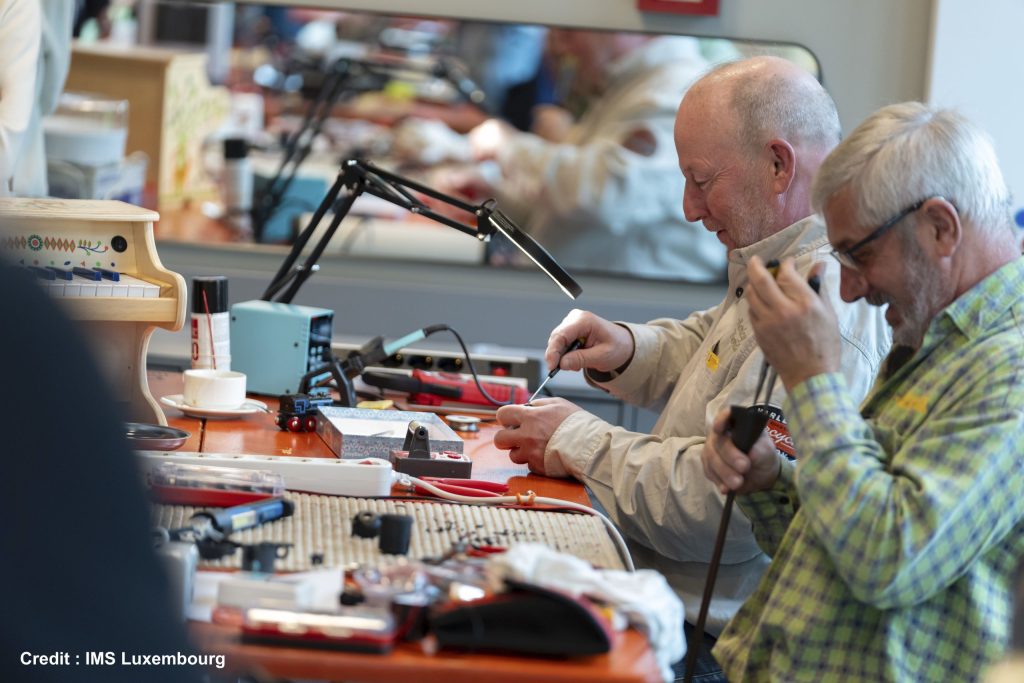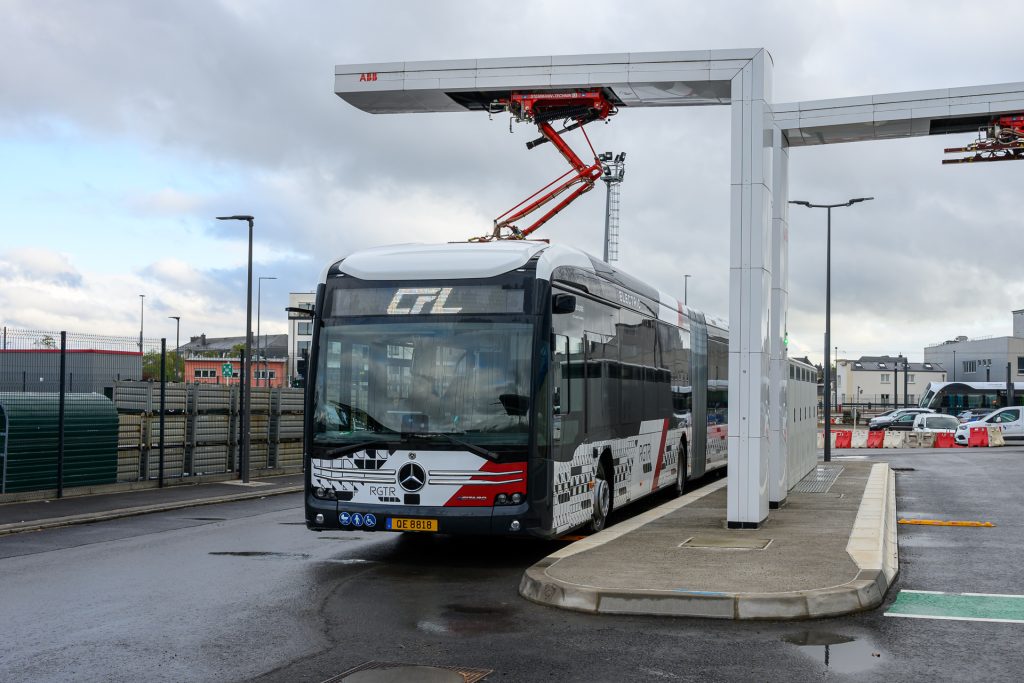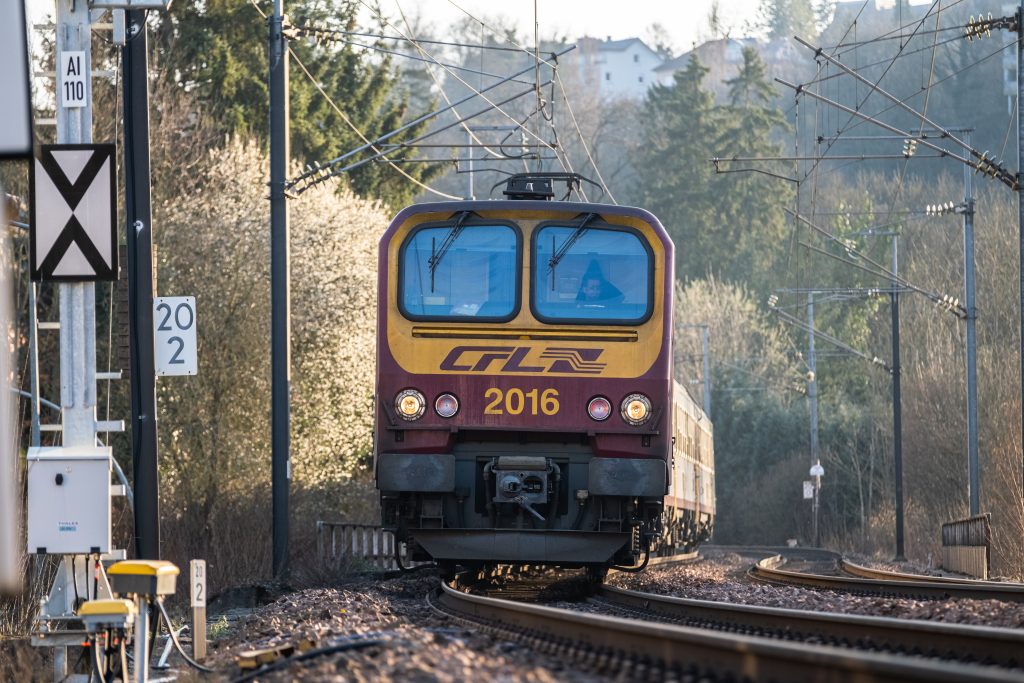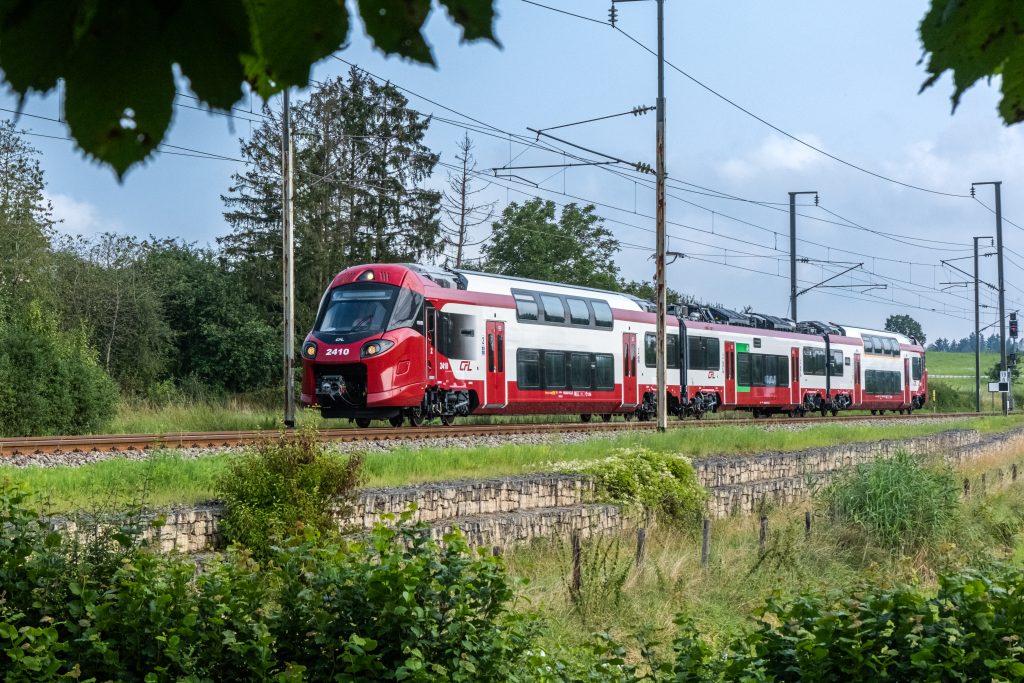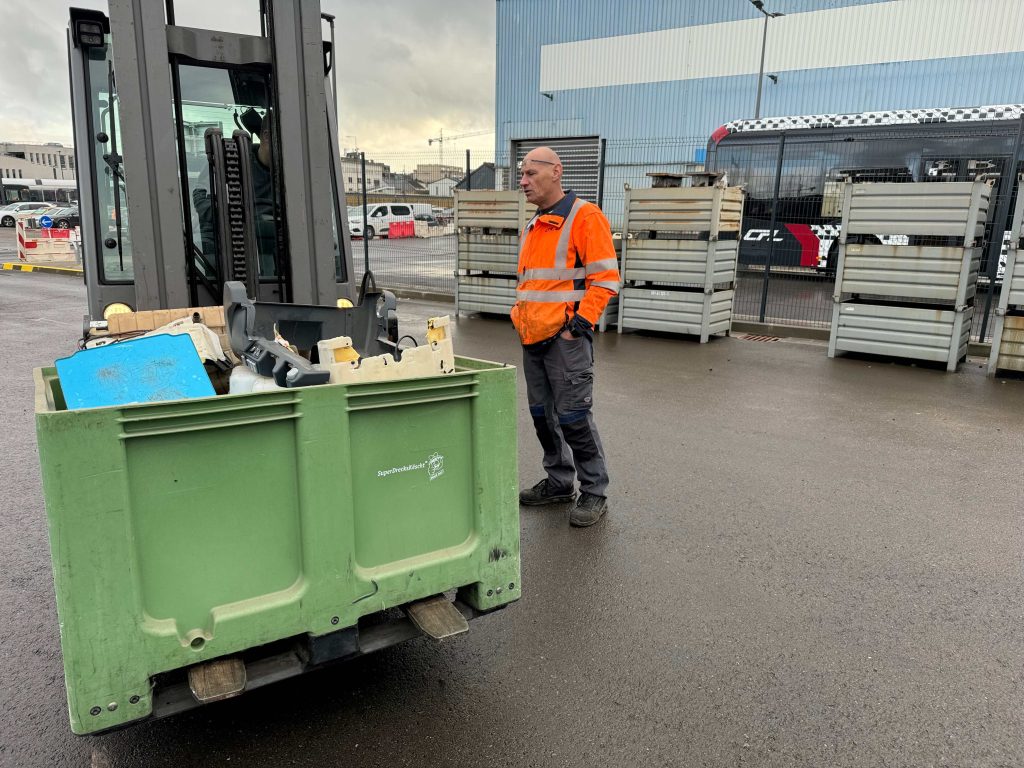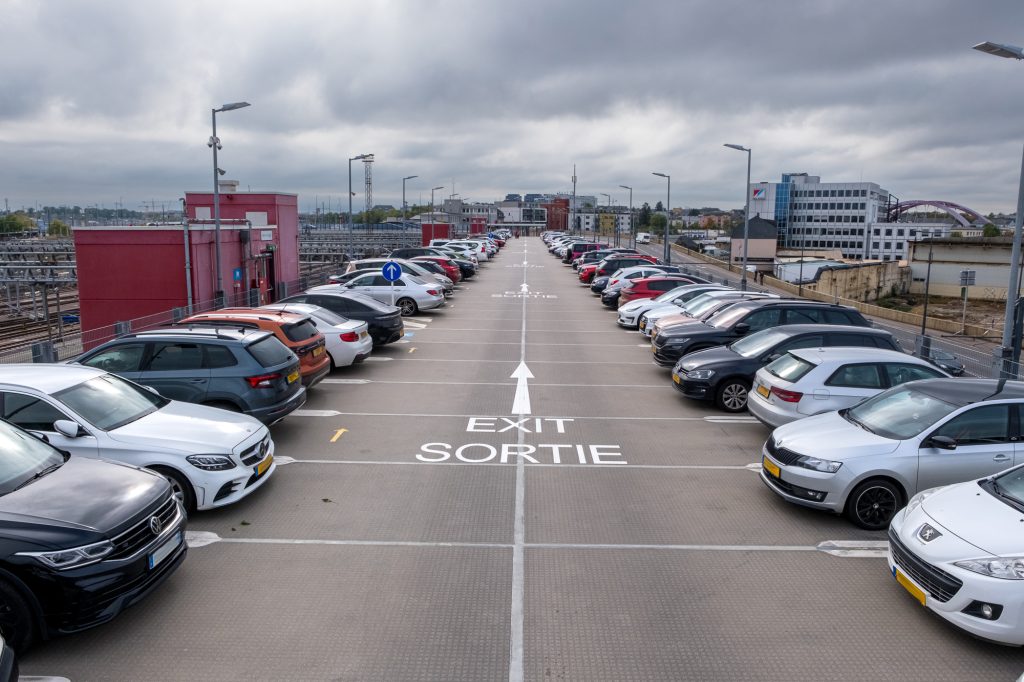
Being economical, cigarette butts and reusable cups: all part of the same battle for a more sustainable world
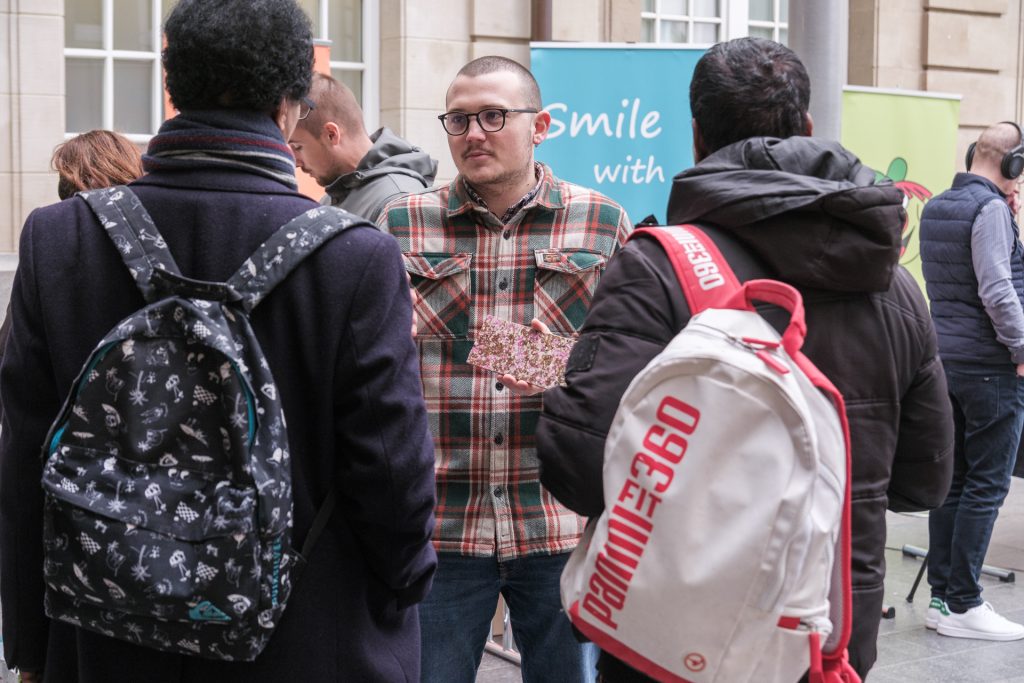
The European Week for Waste Reduction is highlighting the environmentally-friendly ways in which people can contribute to a more sustainable world. This is the opportunity for three organisations to come and meet visitors to the Gare de Luxembourg on Friday 24 November, from 12 to 6pm.
Committed to a responsible approach to its own waste and, more generally, to its environmental footprint, the CFL naturally joined in the European Week for Waste Reduction with two awareness-raising events at Luxembourg Station.
The second takes place on Friday 24 November 2023 from 12pm to 6pm in the station’s glass atrium.
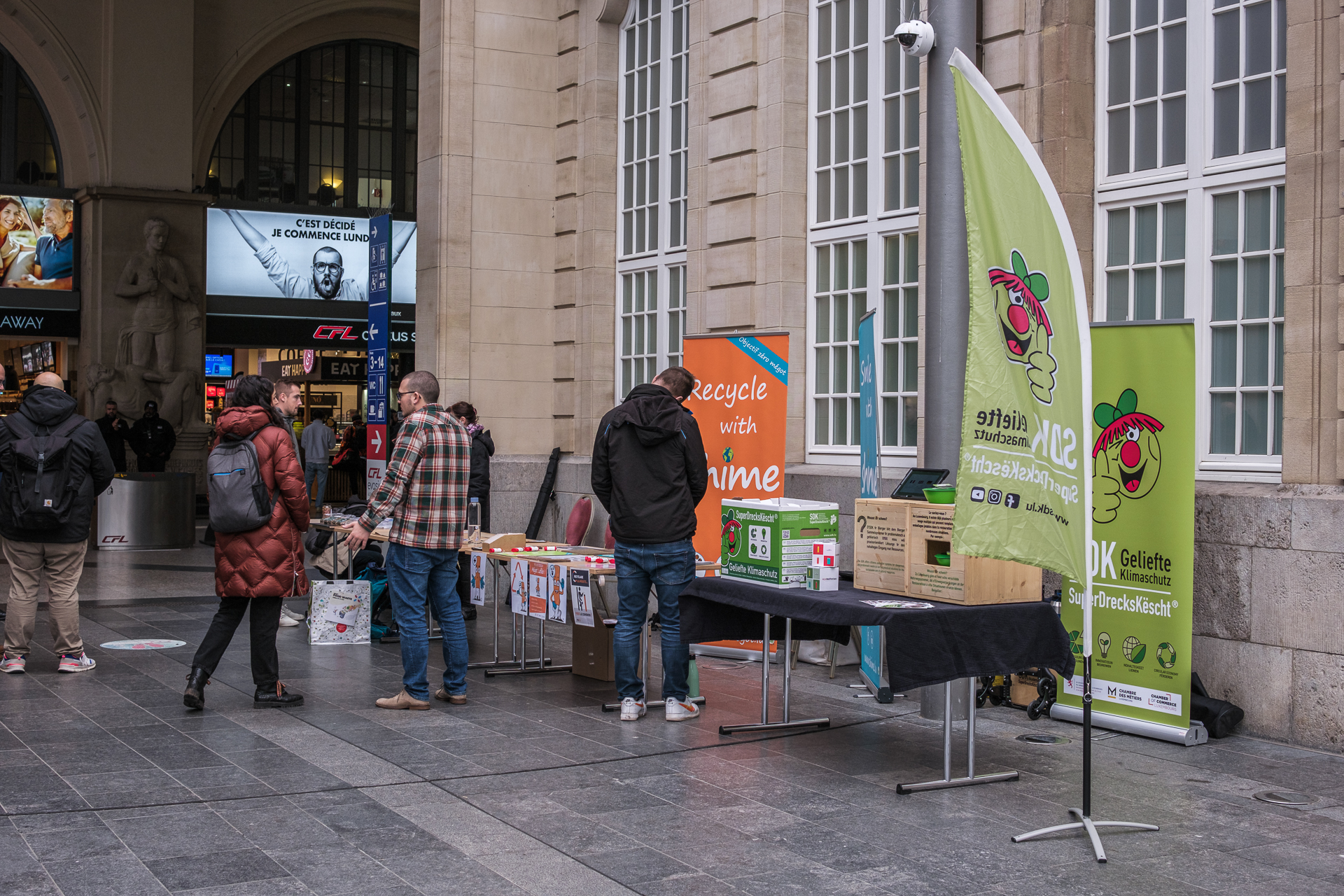
6 million cigarette butts collected in Luxembourg
“We’re fighting the problem of discarded cigarette butts, which are a real burden on the environment, since a single butt can pollute up to 500 litres of water. In Luxembourg, an estimated 700 million cigarettes are smoked every year, resulting in hundreds of thousands of cigarette butts on the ground”, explains Stéphane Herard, founder and managing partner of Shime.
To reduce the harmful effects of cigarette butts on the oceans at the end of the chain, Shime is deploying ashtrays in collaboration with around twenty local authorities and some 80 partner companies. “This has enabled us to collect 6 million cigarette butts over the last year”. The butts are cleaned up via a process established in France and transformed into street furniture.
“This is a more virtuous approach than incinerating the cigarette butts, and our main aim is to show smokers in a fun way what can happen to cigarette butts if they are not thrown on the ground.” To get its “no butts on the ground” message across, Shime is distributing portable ashtrays at Luxembourg station, as well as sharing information with visitors, bearing in mind that the reduction in cigarette butts is encouraged by people giving up smoking…
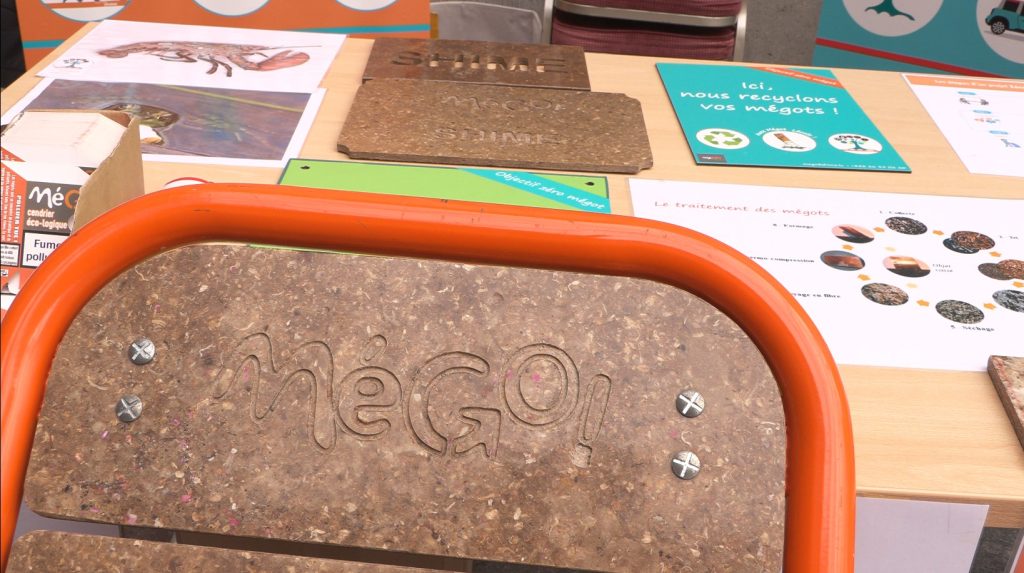
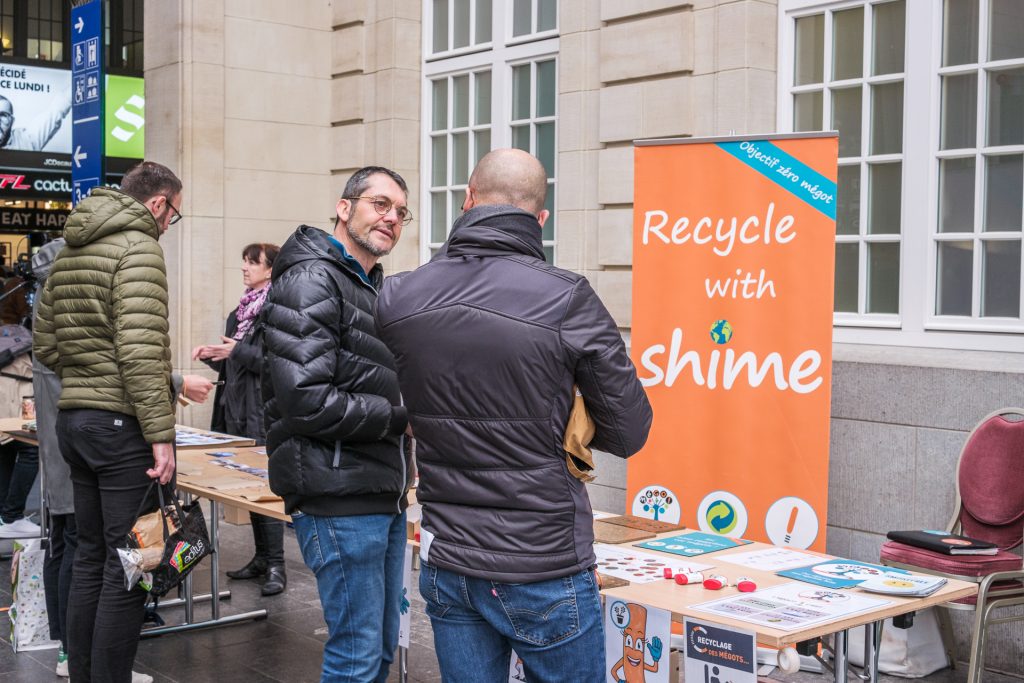
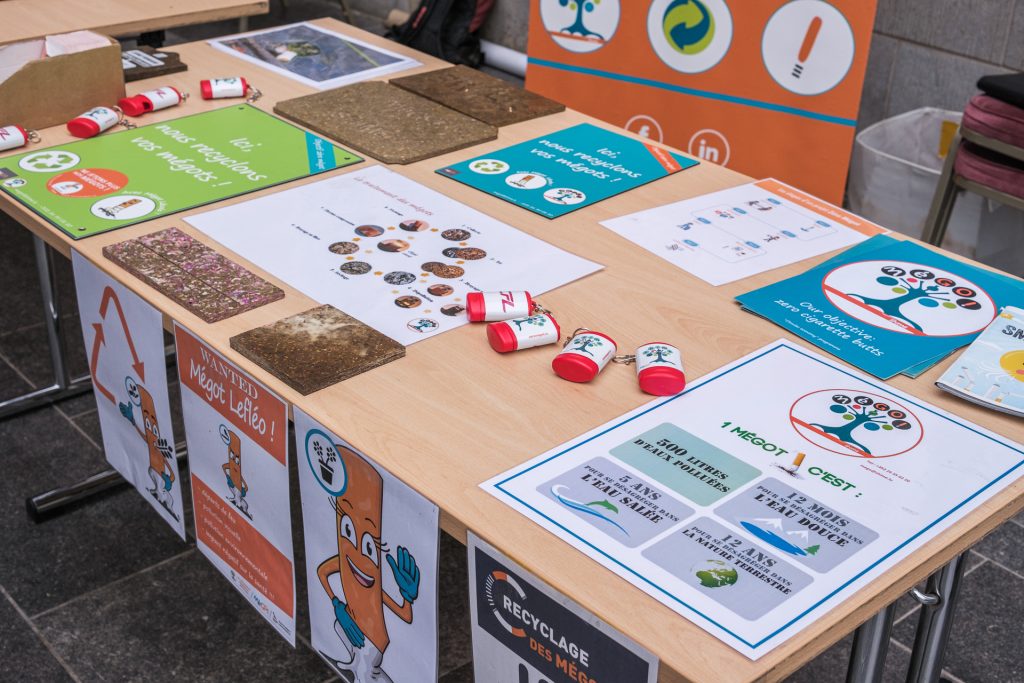
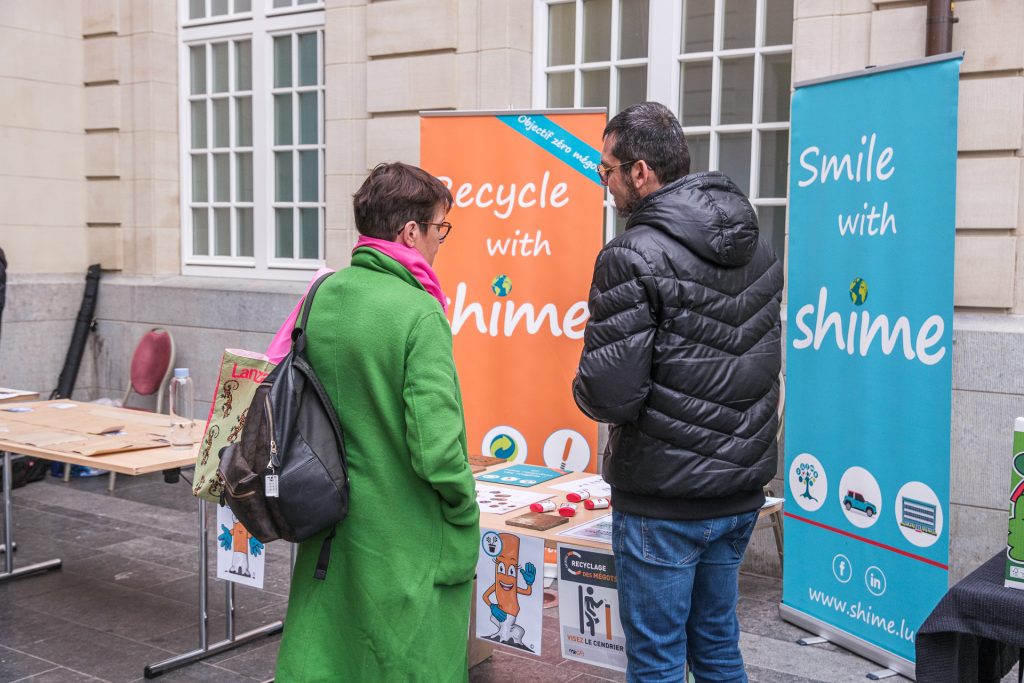
Before you have your coffee, remember to “reuse” it
As part of their morning routine, many CFL customers get off the train with a cup in hand or stop off at a station shop to pick up their caffeinated beverages before heading to the office.
“We’re there to make visitors aware of how they can avoid generating waste. In this case, they have the option of using a reusable coffee cup and having it refilled at all the station’s shops, instead of using a single-use cup”, explains Yannick Heischbourg from the SDK Akademie, an offshoot of SuperDrecksKëscht.
As for the lunch break, there is no shortage of reusable containers to avoid the waste of single-use containers or to take away the surplus from the canteen or restaurant meal.
Reducing waste is essential, but so is sorting residual waste properly so that it can be processed or even recycled. To achieve this, SDK offers a number of services, including an individual cardboard box for collecting hazardous waste. “This box for private individuals is available from recycling centres. When the box is full, all you have to do is contact us and we’ll come and collect it from your home, or take it back to the recycling centre or to one of our collection points,” adds Jessica Cimander from SDK Akademie.
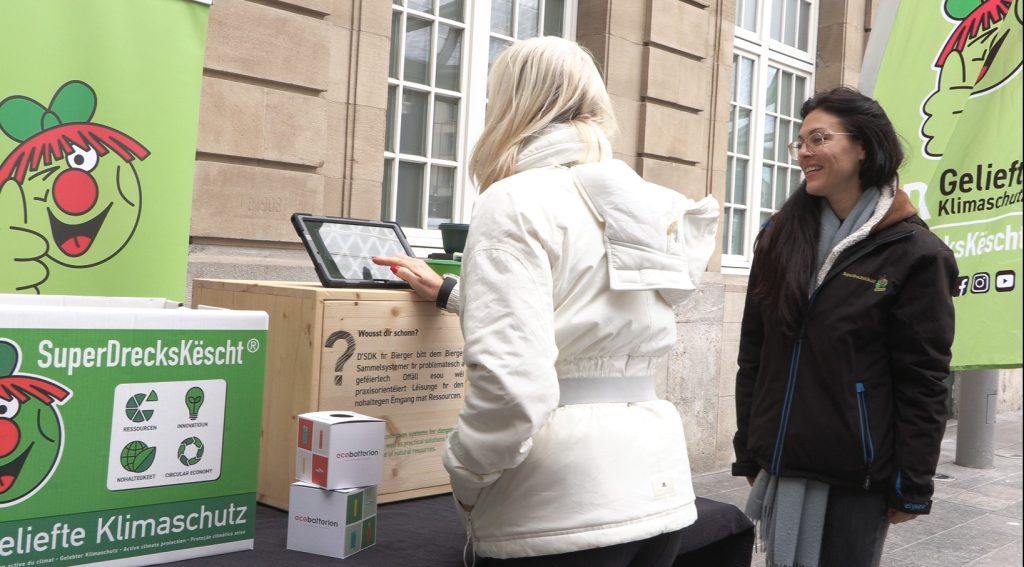
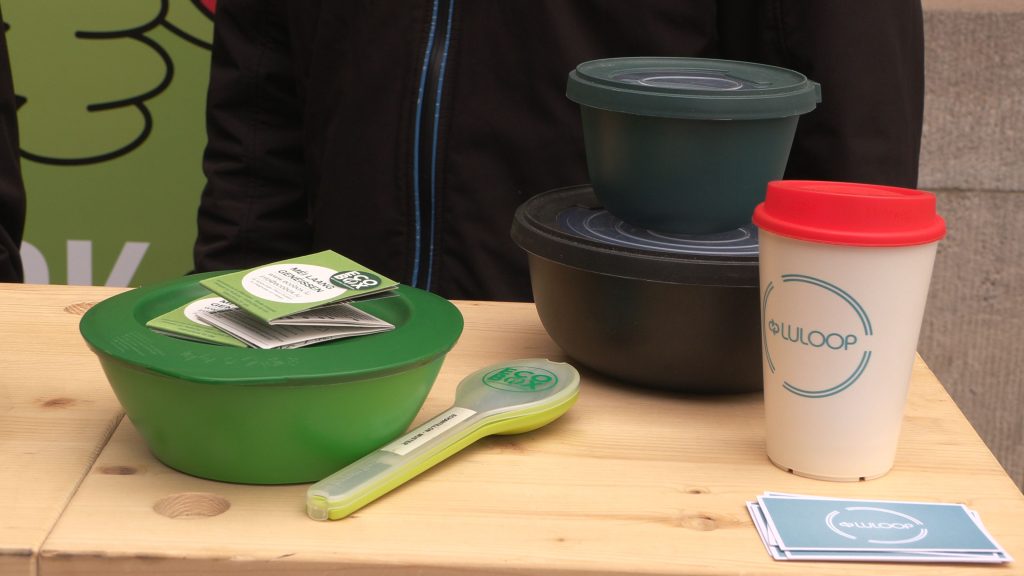
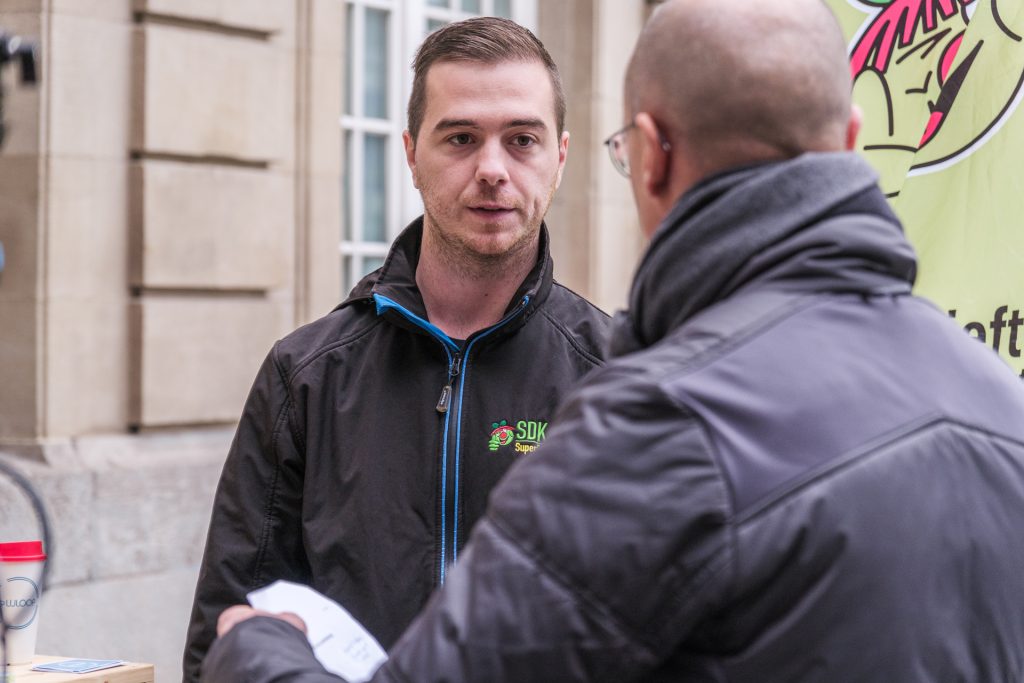
220kg of resources per smartphone
When you lift the rucksack loaded with around twenty kilos of materials by ESE managers, you may never look at your smartphone in the same way again. On its stand, the non-profit organisation, which promotes civic commitment to sustainability, explains that a smartphone weighing 200g requires the use of some 220kg of resources, including 170kg of minerals.
These figures echo the fun games and quizzes offered by ESE to limit waste production (particularly digital waste) and reflect on our own consumption habits in the light of the concept of sobriety.
” The concept of sustainable consumption is based on the ‘5 Rs’ rule: refuse, reduce, repair, recycle and reuse”, explains Marianne Dutriez from the non-profit organisation ESE. If you use this rule every time you do something, you’re bound to start taking a sustainable approach. But it’s important that as many people as possible adopt this approach, without it being perceived as a daunting constraint. “Personally, I started by reducing my meat consumption – which is an ecological disaster – and now eat meat every fortnight.
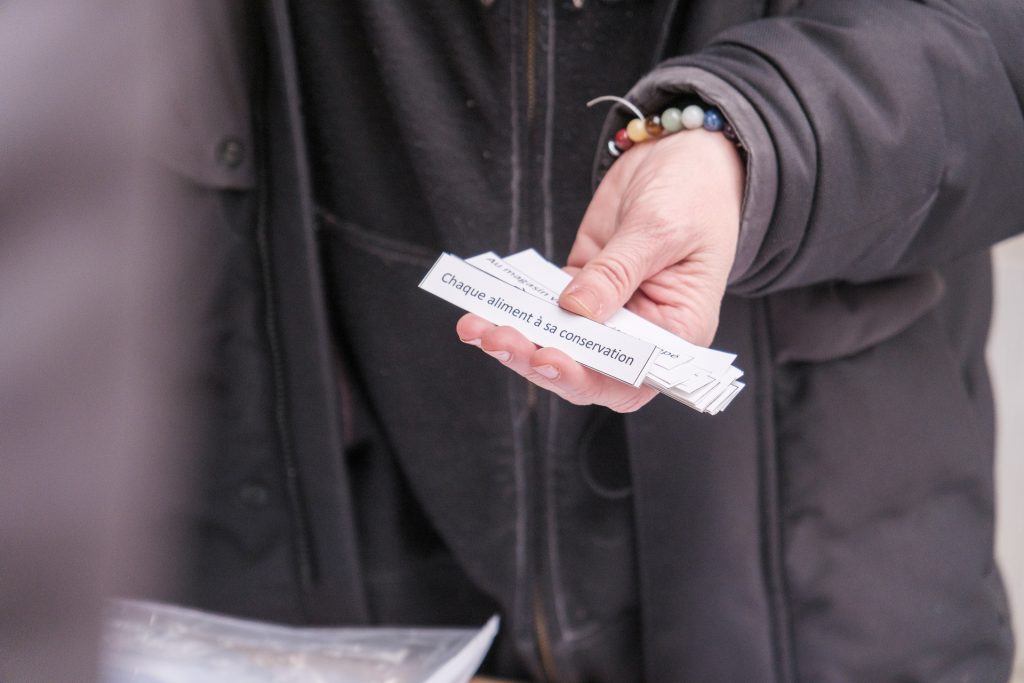

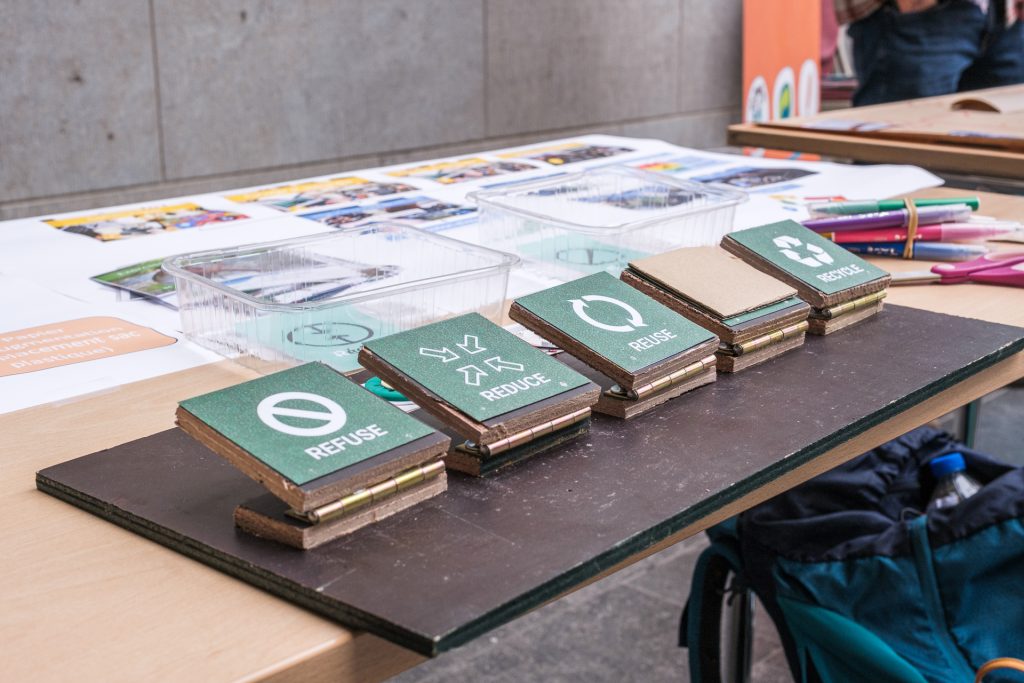
These are small, individual steps on the road to sustainable living, but collectively they should help us to achieve greater sustainability so that we can preserve a viable living environment for future generations.
Read also: European Week for Waste Reduction: two smart events at Luxembourg Station
